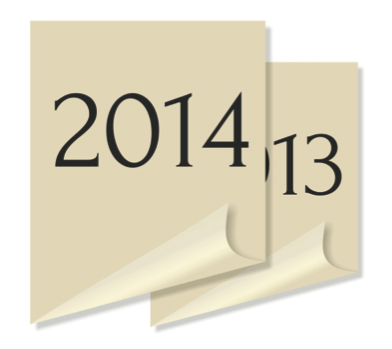Is the industry prepared for a move away from PVC boards towards more flexible and sustainable options? Ashley Moscrop, group director of Dufaylite shares his thoughts and predictions for the year ahead and what this means for the printing industry.
It can’t be ignored; the very noticeable trend within the retail sector is a move away from PVC boards towards more sustainable and environmentally friendly substrates like paper and polypropylene. As the retail industry bows to pressure to reduce its carbon footprint by removing PVC in stores, it’s an issue that’s becoming more apparent and more pressing. In 2014 this will be both an opportunity and a challenge for the printing industry, where PSPs will need to demonstrate increased expertise in printing on in-demand paper-based substrates.
It’s safe to say that many printers are already thinking this way – making the transition to meet retailer demands. This attitude and approach needs to be maintained and spread throughout the entire industry.
For retailers who specify these alternative products directly, the transition is a simple one. The printing and cutting techniques remain the same and there is no requirement for printers to update any equipment. The main challenge however, lies with how printers are equipped to realise these benefits to the retailers who need them. Times have changed, and these days end users simply expect suppliers and printers to help them stand out from the competition and lessen environmental impact, at a competitive price, so it not only pays to be creative, proactive and knowledgeable, it’s a?requirement.
Ask yourself, are you up to speed with landfill tax? Are you prepared to talk numbers and explain the benefits of each product including the full lifecycle cost? It's an all-too common myth in this industry that green products are too expensive, too difficult to work with and produce a lower print quality than PVC. We all know that environmentally paper is easier to recycle and retailers are paid for this waste, rather then having to pay for PVC to go to landfill. However, paper offers so much opportunity.
The economics speak for themselves. Landfill tax currently stands at £72 per tonne and is set to rise to £80 on 1 April 2014. Whilst there is not yet any indication of whether there will be further tax rises from 1 April 2015, we are wholly at the mercy of Chancellor George Osborne and if the last few years are anything to go by, these figures are likely to rise year on year ensuring that recycling is, and will continue to be more cost effective than landfill. Finally, paper boards are generally cheaper then PVC so it’s definitely a win, win.
When it comes to application, the pros and cons are many but most importantly, paper lends itself to more creative solutions, thanks to increased flexibility. It can be creased, cut and easily joined. Rigid paper boards also offer more opportunity for construction applications and applications where strength is required which you also can't do with PVC.
So the crux of the matter is, to stay ahead of the curve you need to be comfortable with the customers’ lingo and know the market inside out. To succeed, you need to recognise the trends and understand the products you can use and how this will not only affect your bottom line but that of your customer. Remember that major retailers are leading this charge and as consumers become more environmentally aware, it’s no longer acceptable for retailers to ignore their impact on the planet. This is why substrate manufacturers and printers have a responsibility too. Demand is there and quite simply supply will go to whoever can provide this service, guidance and solution.
{jathumbnail off}


